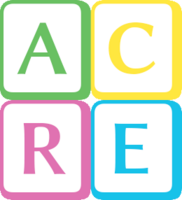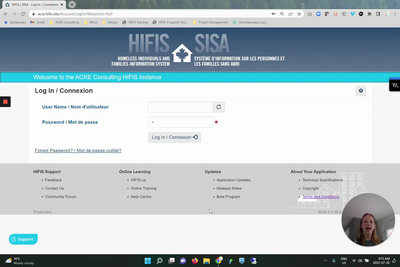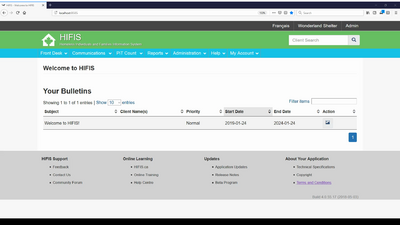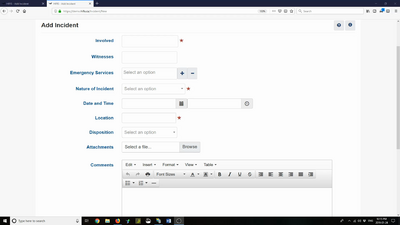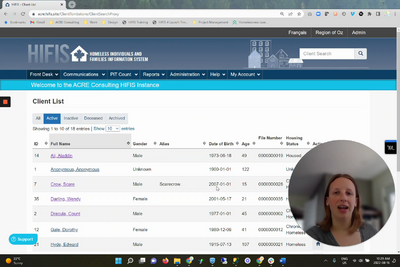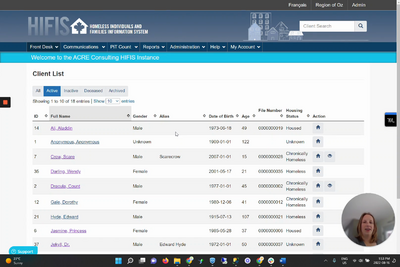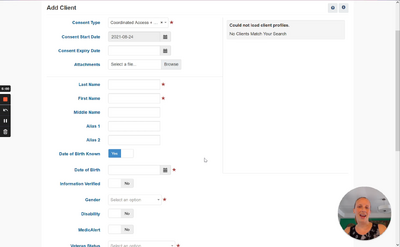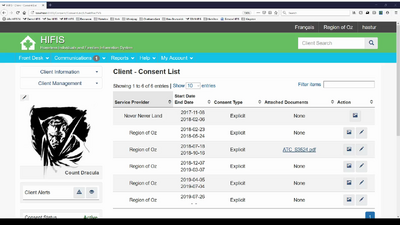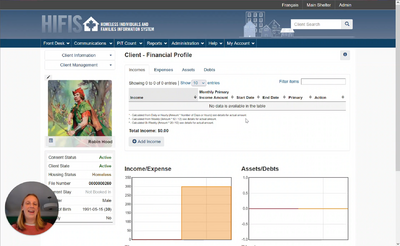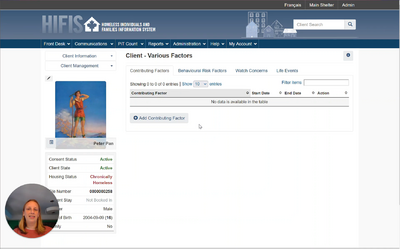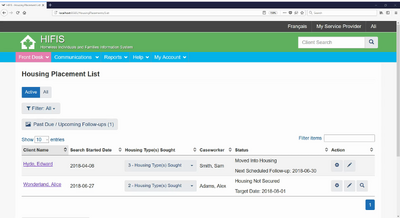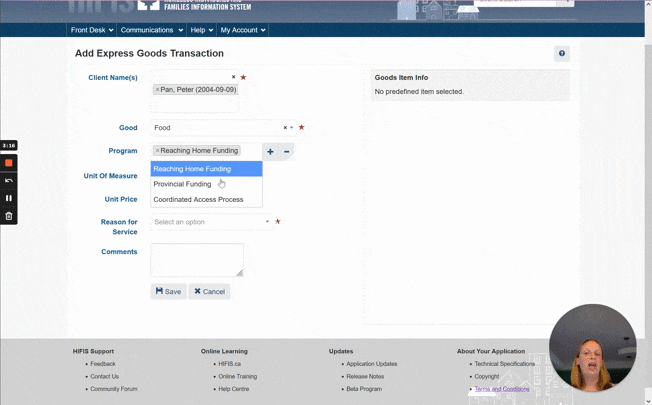
Housing-Based Case Manager Training
For housing-based case managers, this course covers: logging in and accessing HIFIS; adding clients, consent, families, and other client information; case management; the housing search process; VAT & SPDAT assessments; goods, and financial assistance; communications, and running reports.
The Homeless Individuals and Families Information System (HIFIS) is a comprehensive data collection and case management system designed to better understand what is happening in your community and to work collaboratively.
The Consent module is used to record any consent given or denied by the client related to service provider services. You can indicate if the consent was given, at which date and even attach signed documents.
The Family module is used to keep track of a client’s family members and the role each member has in the family. Family roles include dependant, family head and partner. When a client is linked to a family, they can be managed as a family unit for certain activities, such as book ins.
The Housing History module is used to keep track of the client’s past and present housing situation.
The Financial Profile module allows users to help clients manage their finances by tracking their income, expenses, assets and debts. Once values are added, visual representations of the client’s financial profile will appear.
The Service Prioritization Decision Assistance Tool (SPDAT) was developed as an assessment tool for frontline workers at agencies that work with homeless clients to prioritize which of those clients should receive assistance first.
The Vulnerability Assessment Tool (VAT), developed at the Downtown Emergency Service Center (DESC) in Seattle, Washington, provides a structured way of measuring an individual's vulnerability to continued instability.
The Case Management module allows the service provider to keep records of the activities done with a client to reach pre-determined goals. Each goal (desired outcome) that a caseworker and client work towards is a separate record in the Case Management module. For example, if a client has a mental health issue they would like to work on and would also like to find employment, two Case Management records would be created for the client.
The Housing Placement module covers a client's housing search process from the time they are assigned to a case manager through to the time that they are housed and no longer requiring supports.
Goods & Services offer ways for staff to record that they provided clients with tangible Goods or helpful Services that are not connected to an overall case plan.
The Service Restrictions module records services that a client is restricted from, which service providers have restricted them and for how long. It also records the reason why the services were restricted. Clients can be restricted from the following modules: Stays, Food Banks and Goods and Services. When a client is restricted from service, a Client Alert appears under their profile.
There are three types of communications in HIFIS: Bulletins, Broadcasts, and Messaging.
The Bulletins module is an electronic bulletin board system used to advise staff of important information, such as team meetings, fire drills or incidents concerning a specific client.
The Messaging module is used to send confidential messages between specific users. Messages are similar to email in that they can only be viewed by the individuals who receive them.
The Broadcast module is used when a message needs to be seen by every user who is currently logged into HIFIS. A broadcast displays an urgent message by sowing an orange notification in the top right corner of the page.
There are three types of communications in HIFIS: Bulletins, Broadcasts, and Messaging.
The Bulletins module is an electronic bulletin board system used to advise staff of important information, such as team meetings, fire drills or incidents concerning a specific client.
The Messaging module is …
The Reports module is used to generate reports. Reports can be high-level for system analysis (eg. monthly inflow/outflow, funding requirements), or simply provide a useful output for front line staff (eg. a bed list, case management overview).
